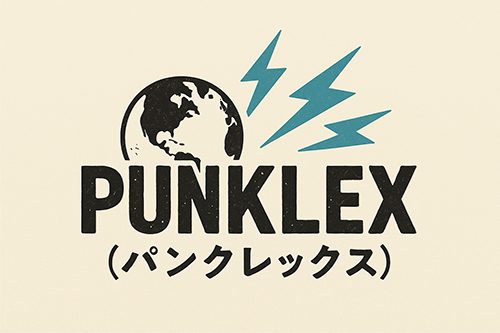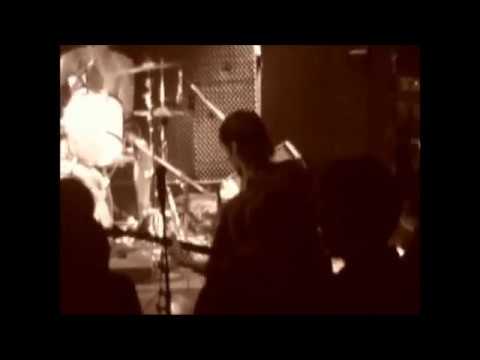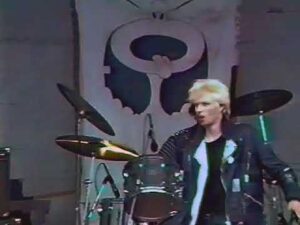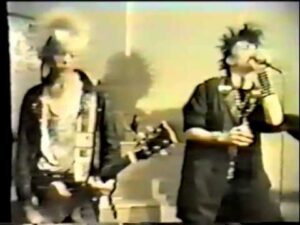Formation & Members
Belle Epoque (ベルエポック) emerged from the vibrant underground punk scene of Tokyo in the early 2000s. The band was formed by four high school friends who shared a passion for the raw energy and unfiltered emotion of punk rock. The original lineup consisted of lead vocalist and lyricist Akira Tanaka, guitarist Yuki Matsuda, bassist Rei Kimura, and drummer Satoshi Nakamura. Their mutual love for both Western punk icons and Japanese rock influences provided the foundation for their unique sound. The name Belle Epoque, meaning “Beautiful Era” in French, was chosen to reflect their desire to create music that captured the essence of a transformative and rebellious time.
Musical Style & Characteristics
Belle Epoque’s musical style can be described as an explosive blend of punk and hardcore, distinguished by its high-energy performances and emotionally charged lyrics. The band was known for its fast-paced, aggressive sound, often featuring distorted guitars, powerful bass lines, and frantic drumming. Akira Tanaka’s raw and passionate vocals were a defining characteristic, conveying themes of societal disillusionment, personal struggles, and a yearning for change. Their music often incorporated elements of traditional Japanese melodies, adding a distinctive flavor that set them apart from their Western counterparts. Belle Epoque’s songs were typically short, rarely exceeding three minutes, yet packed with intensity and conviction.
Key Works & Discography
Belle Epoque’s discography, though not extensive, left a significant impact on the punk and hardcore scene. Their debut EP, “Revolutionary Echoes,” released in 2004, captured the attention of the underground music community with its raw energy and poignant lyrics. Songs like “Shattered Dreams” and “Echoes of the Past” became anthems for disaffected youth, resonating deeply with listeners. In 2006, they released their first full-length album, “Breaking the Silence,” which further solidified their reputation. The album featured tracks like “Rising Tide” and “Silent Rebellion,” which showcased their evolving sound and lyrical depth. Their final release, “Distant Horizons” in 2009, demonstrated a more mature approach to songwriting while maintaining their punk roots.
Influence on Other Bands/Scenes
Belle Epoque’s influence extended beyond their immediate fanbase, impacting both the local and international punk scenes. They inspired a wave of young Japanese bands to embrace the DIY ethic and explore the fusion of punk with traditional Japanese sounds. Their willingness to address societal issues and personal struggles in their music encouraged other artists to do the same, fostering a community of like-minded musicians dedicated to authenticity and expression. Internationally, Belle Epoque’s unique sound and energetic performances caught the attention of punk enthusiasts, leading to collaborations and tours with bands from the US and Europe, further cementing their status as pioneers of the genre.
Breakups or Reunions
In 2010, Belle Epoque announced an indefinite hiatus, citing personal differences and the desire to explore new creative directions as the primary reasons. Despite their decision to step away from the band, the members remained active in the music scene, pursuing solo projects and collaborating with other artists. Rumors of a potential reunion circulated over the years, fueled by occasional appearances at benefit shows and special events. In 2018, to the delight of their fans, Belle Epoque reunited for a one-off performance celebrating the 10th anniversary of “Breaking the Silence.” While a full-scale reunion tour has yet to materialize, the band has expressed openness to future collaborations.
Current Reputation & Legacy
Today, Belle Epoque is regarded as a seminal influence in the punk and hardcore community, both in Japan and abroad. Their music continues to resonate with new generations of fans who discover their work through digital platforms and word of mouth. The band’s fearless approach to tackling social issues and their innovative fusion of styles have earned them a place in the annals of punk history. Critics and musicians alike frequently cite Belle Epoque as a source of inspiration, praising their ability to remain authentic and relevant in a rapidly changing musical landscape.
Conclusion
Belle Epoque (ベルエポック) may not have enjoyed a long-lived career, but their impact on the punk and hardcore scene is undeniable. From their formation in the bustling streets of Tokyo to their legacy as trailblazers of a unique musical fusion, the band has left an indelible mark on the genre. Their story is one of passion, innovation, and resilience, capturing the spirit of a beautiful era in punk history. Whether through their recorded works or the influence they continue to exert, Belle Epoque’s contribution to the music world remains a testament to the power of creativity and rebellion.









